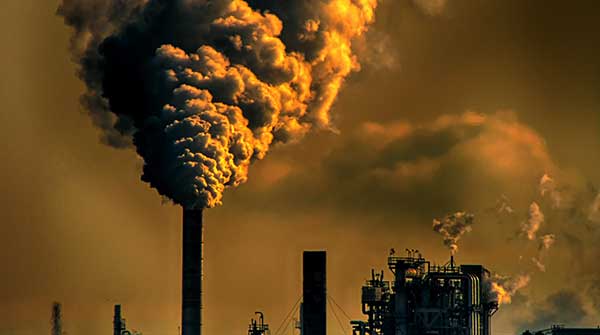Cherry-picked data misleads: Emissions cap won’t hurt the economy
 Individual Canadians, including oil and gas workers, are doing their part to lower our country’s emissions. Not so for Canada’s oil and gas corporations’ executives and lobbyists.
Individual Canadians, including oil and gas workers, are doing their part to lower our country’s emissions. Not so for Canada’s oil and gas corporations’ executives and lobbyists.
These corporations promised the emissions reduction standards contained in the Canada emissions cap were technically feasible. They were certainly consulted on the cap. In just one month alone, oil and gas industry lobbyists met with federal government officials at least ninety-one times.
Moreover, oil and gas companies have accepted large amounts of taxpayer money for carbon capture and storage, based on their assertion that they could reduce emissions. Was this money given based on a lie?
Now, with an emissions cap itself on the table to hold oil and gas corporations to their emissions reduction promises, these corporations are complaining, “Please don’t regulate us; it will be too expensive.”
There’s a real cost to Canadians’ wallets related to these oil and gas corporations, but it has nothing to do with an emissions cap. For every extra dollar you spend due to inflation, 25 cents goes to profits in mining and oil and gas extraction. These corporations have the money needed to implement the cap because we gave it to them.
The emissions cap is about fairness. While only five percent of Canada’s economy, the oil and gas sector is Canada’s most polluting sector causing around 30 percent of national emissions.
Canada has very high per capita emissions compared to other countries. But our country’s failure to meet emissions targets is not the fault of individuals; it is the fault of large oil and gas corporations. We can’t ask people in other countries with much lower per capita emissions to act on climate change if we don’t regulate these corporations in Canada.
Other countries are taking action, driven by their desire for energy independence. As a result, Canada risks falling behind in developing its green economy. Those who want Canada to stay competitive internationally should take note.
We risk falling behind due to strategic attacks on climate policy and factual climate information by oil and gas lobbyists and executives. These attacks, both globally and locally, are very well documented.
Contrary to lobbyists’ claims, oil and gas corporations could also implement the emissions cap, even under realistic future scenarios of market demand for oil and gas.
Oil and gas lobbyists have cherry-picked findings from a Deloitte study to argue that the emissions cap would harm the Canadian economy. However, this conclusion is based on a scenario where there is a complete global failure to tackle the climate crisis.
This scenario envisions wildfires destroying more Canadian communities, homes, and lives, making properties in flood zones unmarketable, and spiralling climate change costs far beyond the billions already impacting Canadian households. Only in such a dire situation could the emissions cap force oil and gas corporations to make a difficult choice: sacrifice some of their enormous profits to lower emissions or cut production.
If that scenario comes to pass, the threat of global climate-driven conflict will weigh more heavily on people’s minds than the minimal costs of an emissions cap. That’s what happens when food starts to run out.
That drastic scenario is unlikely. Pursuing it would lock the Canadian economy into the false belief that future demand for Canadian LNG and oil exists, driving up domestic energy costs. In reality, global demand for LNG is rapidly declining.
A steep decline in our oil and gas industry is inevitable, driven by international market conditions rather than domestic climate policy. The emissions cap won’t cost jobs, but job losses are certain without strong climate policies to help workers adapt to a changing global economy.
Canadians are already paying for the costs of climate change. Thousands were recently evacuated from their homes in Alberta, and a wildfire in Labrador “exploded” after seeming to be under control. Solutions exist, and the endless excuses for inaction must stop.
Conor Curtis is head of communications at Sierra Club Canada.
For interview requests, click here.
The opinions expressed by our columnists and contributors are theirs alone and do not inherently or expressly reflect the views of our publication.
© Troy Media
Troy Media is an editorial content provider to media outlets and its own hosted community news outlets across Canada.


